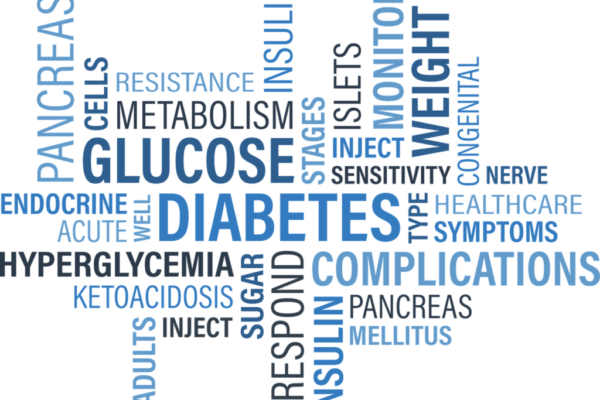Transformative Journey: The Power and Challenges of Fasting for 30 Days

In our fast-paced world, where instant gratification and convenience reign supreme, the idea of voluntarily abstaining from food for an extended period may seem counterintuitive.
However, fasting has been practised for centuries and is known for its potential health benefits and spiritual significance. One form of fasting that has gained popularity in recent years is the 30-day fast, a prolonged period of abstaining from solid food.
This article aims to delve into the intricacies of a 30-day fast, exploring its potential benefits, challenges, and considerations for those contemplating embarking on this transformative journey.
Basics of Fasting
Fasting is the deliberate and temporary abstention from consuming food or drink.
It is a practice that has been observed across different cultures and religions for centuries.
While the specific rules and methods of fasting may vary, the underlying principle remains the same: the intentional restriction of caloric intake for a designated period (1).

Fasting holds a deep historical and cultural significance in various societies around the world.
It has been practised for spiritual, religious, and health-related purposes. In many ancient civilizations, fasting was seen to cleanse the body, purify the mind, and achieve a state of heightened awareness or enlightenment.
Types and Benefits of Fasting
Intermittent Fasting:
Time-restricted feeding: This involves restricting the daily eating window to a specific time frame, such as 16/8 (16 hours of fasting and an 8-hour eating window) or 20/4.
It is one of the most common forms of intermittent fasting.
Alternate-day fasting: This method involves alternating between fasting days, where little to no calories are consumed, and non-fasting days with regular eating.
5:2 fasting: In this approach, individuals consume a normal diet for five days of the week and restrict calorie intake to around 500-600 calories on two non-consecutive fasting days.
Extended Fasting:
24-hour fast: This involves abstaining from food for a full 24-hour period. It can be practised once or twice a week or on alternate days.
48-hour fast: In this fasting method, individuals refrain from consuming food for a continuous 48-hour period.
Prolonged fasts (e.g., 72 hours or longer): These extended fasting periods usually last several days or even weeks, during which individuals consume only water or certain liquids, often under medical supervision.
Religious And Spiritual Fasting:
Ramadan: Muslims fast from dawn until sunset during the month of Ramadan, abstaining from food, drink, smoking, and other physical needs during daylight hours.
Lent: Christians may observe 40 days of fasting and self-reflection leading up to Easter, during which they may restrict certain foods or engage in partial or complete fasting.
Yom Kippur: In Judaism, Yom Kippur is a day of atonement and fasting, where individuals abstain from food and drink for approximately 25 hours.
Potential Benefits of Fasting
Metabolic Benefits:
Weight Loss: Fasting can lead to calorie restriction and, consequently, weight loss. It may also promote fat-burning and metabolic efficiency.
Improved Insulin Sensitivity: Fasting has been shown to enhance insulin sensitivity, potentially reducing the risk of type 2 diabetes and improving blood sugar control.
Autophagy: Fasting triggers autophagy, a cellular process that helps remove damaged cells and proteins, promoting cellular repair and renewal (2).
Health Benefits:
Reduced Inflammation: Fasting has been linked to a reduction in systemic inflammation, which is associated with various chronic diseases.
Improved Cardiovascular Health: Fasting may contribute to lower blood pressure, improved lipid profiles, and reduced risk factors for cardiovascular disease.
Enhanced Brain Health: Some studies suggest that fasting may enhance cognitive function, protect against neurodegenerative diseases, and support brain health.
Psychological And Spiritual Benefits:
Enhanced Focus and Mental Clarity: Fasting is believed to promote mental sharpness, concentration, and improved cognitive performance.
Emotional Well-Being: Fasting can foster self-discipline, self-awareness, and emotional resilience. It may also provide a sense of accomplishment and empowerment.
Spiritual Growth: Many individuals experience fasting as a means of spiritual reflection, strengthening their connection to their beliefs, and deepening their sense of purpose.
What is 30-Day Fasting?
Embarking on a 30-day fast is a significant commitment that requires careful planning, preparation, and consideration.
This extended period of fasting involves abstaining from solid food for a month, with the primary source of nourishment being water. It is essential to approach a 30-day fast with knowledge, discipline, and medical supervision.
Water Fast:
In a water fast, individuals consume only water for the entire duration of the 30-day fast.
This form of fasting is considered the most challenging but can potentially provide profound benefits.
It is crucial to drink an adequate amount of water throughout the day to maintain hydration and support bodily functions.

Medical supervision is strongly advised for prolonged water fasting to monitor vital signs, ensure safety, and address any potential complications.
Modified Fasting Protocols:
Modified fasting protocols involve consuming a limited amount of calories or specific types of liquids during the 30 days (3).
Juice fast: Some individuals opt for a juice fast, where they consume freshly pressed fruit or vegetable juices to provide essential nutrients while still limiting caloric intake.
Bone broth fast: This approach involves consuming only bone broth, which provides essential minerals and nutrients while keeping caloric intake low.
Alternate Fasting Days:
Another approach to a 30-day fast is alternating fasting days with days of regular eating.
On fasting days, individuals limit caloric intake to a very low amount, often around 500-600 calories, typically from nutrient-dense foods or meal replacement options.
On non-fasting days, individuals can eat a regular, balanced diet to meet their nutritional needs.
Time-Restricted Fasting:
This approach involves limiting the daily eating window while maintaining a fasting period.
For example, individuals may choose to practice a 20/4 or 18/6 fasting schedule, where they fast for 20 or 18 hours, respectively, and consume all their daily calories within the remaining 4 or 6-hour window.
Benefits of the 30-Day Fasting
One of the primary motivations for undertaking a 30-day fast is weight loss.
By restricting caloric intake for an extended period, the body is forced to utilize stored fat for energy, leading to weight reduction. However, it is important to note that individual results may vary.
Fat Burning: During a 30-day fast, the body depletes its glycogen stores and starts utilizing stored fat as an energy source.
This can lead to significant weight loss and a reduction in body fat percentage.
Metabolic Changes: Prolonged fasting may have beneficial effects on metabolic markers, such as insulin levels and blood lipid profiles.
It can contribute to improved metabolic flexibility, where the body becomes more efficient at switching between different energy sources (4).
Improvements in insulin sensitivity and blood sugar control
Enhanced Insulin Sensitivity: Fasting has been shown to improve insulin sensitivity, which is the body’s ability to respond to insulin and regulate blood sugar levels.
Improved insulin sensitivity can reduce the risk of insulin resistance and type 2 diabetes.
Blood Sugar Regulation: Fasting can lead to more stable blood sugar levels by reducing spikes and dips in glucose levels.
This can be beneficial for individuals with conditions such as prediabetes or type 2 diabetes.
Detoxification and cellular regeneration
Autophagy: Fasting triggers a process called autophagy, which is the body’s way of recycling and clearing out damaged cells and cellular debris.
This cellular regeneration process can help remove toxins and promote overall cellular health.
Reduced Oxidative Stress: Fasting has been shown to reduce oxidative stress, which is an imbalance between the production of free radicals and the body’s ability to neutralize them.
Lower oxidative stress levels can have positive effects on overall health and ageing.
Cognitive benefits and mental clarity during fasting
Increased focus and mental clarity: Many individuals report enhanced mental focus and clarity during fasting.
This may be attributed to a decrease in blood sugar fluctuations and improved brain function due to metabolic adaptations during fasting.
Neurological Benefits: Fasting has been studied for its potential neuroprotective effects, potentially reducing the risk of neurodegenerative diseases such as Alzheimer’s and Parkinson’s disease.
It may also support brain plasticity and the production of brain-derived neurotrophic factor (BDNF), which is essential for brain health.
These are some benefits of fasting for 30 days.
Challenges For 30 Days Fasting
While a 30-day fast can have potential physical benefits, it is essential to acknowledge and address the psychological and emotional aspects that individuals may experience during this extended period of fasting.
Psychological Challenges: Extended fasting can present various psychological challenges that individuals may encounter throughout the 30-day fast. These challenges may include:
Hunger and Food Cravings: As the body adjusts to the absence of solid food, hunger and food cravings may become more pronounced.

Dealing with these sensations can be mentally and emotionally challenging.
Psychological Attachment to Food: Food plays a significant role in our lives, not only as a source of nourishment but also as a means of pleasure, comfort, and socialization.
Letting go of these attachments can be psychologically demanding.
Emotional Fluctuations: Fasting can trigger emotional fluctuations, including irritability, mood swings, or feelings of frustration.
This can be attributed to changes in hormone levels, metabolic adaptations, and the psychological impact of the fasting experience.
Social and Cultural Pressures: Engaging in a 30-day fast may conflict with social gatherings, celebrations, and cultural traditions that revolve around food. Navigating these situations can be emotionally challenging.
Mindset and Support Systems: Developing a positive mindset and having a strong support system in place can significantly impact psychological well-being during a prolonged fast. Strategies that can help include:
Setting Realistic Expectations: Having realistic expectations and understanding the potential challenges of a 30-day fast can help individuals better navigate the psychological aspects of fasting.
Building a Support Network: Engaging with a supportive community, whether through online forums, fasting groups, or connecting with like-minded individuals, can provide emotional support and encouragement throughout the fasting journey.
Practising Self-Care and Stress Management: Incorporating self-care practices such as mindfulness, meditation, journaling, or engaging in activities that bring joy and relaxation can help manage psychological stress and promote emotional well-being.
Preparing and Executing for 30-Day Fast
Pre-Fast Considerations and Gradual Dietary Adjustments
Before embarking on a 30-day fast, it is important to make thoughtful preparations and gradually adjust your diet to ease the transition into fasting.
Gradual Dietary Adjustments: To prepare your body for an extended fast, consider making gradual dietary adjustments in the weeks leading up to the fast (5).
This may include reducing portion sizes, eliminating processed foods, and incorporating more whole foods into your diet.
Hydration, Electrolyte Balance, and Supplementation
Maintaining proper hydration and electrolyte balance is crucial during a 30-day fast to support overall well-being and mitigate potential complications.
Hydration: Drink an adequate amount of water throughout the day to stay hydrated. Monitor your urine color as a general indicator of hydration levels.
Clear to light yellow urine is typically a sign of good hydration.
Electrolyte Balance: Consider supplementing with electrolytes to replenish essential minerals. Electrolyte supplements can help maintain proper hydration and support optimal bodily functions.
Strategies for managing hunger and cravings
During a 30-day fast, managing hunger and cravings can be a significant challenge. Implementing strategies to cope with these sensations can help support your fasting journey.
Stay Busy and Distracted: Engage in activities that keep your mind occupied and divert your attention from food cravings.
Productive tasks, hobbies, physical exercise, or spending time with loved ones can help occupy your thoughts.
Stay Hydrated: Drinking water can help alleviate hunger pangs and reduce cravings.
Sip on water throughout the day to help manage hunger.
Breaking The Fast Safely and Transitioning Back to Regular Eating
As the 30-day fast comes to an end, it is crucial to break the fast gradually and reintroduce food to your system safely and mindfully.
Start with Small Meals: Begin by consuming small, easily digestible meals or snacks to allow your body to readjust to solid food. Avoid overeating or consuming heavy meals immediately after the fast.
Focus on Nutrient-Dense Foods: Prioritize whole, nutrient-dense foods such as fruits, vegetables, lean proteins, and healthy fats when breaking the fast.
Gradually reintroduce other food groups as your body adjusts.
Listen to Your Body: Pay attention to how your body responds to different foods as you reintroduce them. Take note of any sensitivities or digestive issues and adjust your diet accordingly.
By following these guidelines and proceeding mindfully, you can ensure a safe and effective transition into and out of a 30-day fast.
Summary
This article offers a comprehensive overview of fasting for a duration of 30 days. It begins by defining fasting and highlighting its historical significance.
The article then discusses various fasting methods, including water fasting, modified fasting protocols, alternate fasting days, and time-restricted fasting.
Moving on, it explores the potential benefits of a 30-day fast, such as weight loss, metabolic effects, improvements in insulin sensitivity and blood sugar control, detoxification, cellular regeneration, and cognitive benefits.
To address potential risks and complications, the article delves into a prolonged fast’s psychological and emotional aspects, emphasising the importance of mindset, support systems, and self-care practices.
This article aims to equip readers with a comprehensive understanding of the benefits, challenges, and preparation involved in undertaking a 30-day fast and prioritizing mental and physical well-being throughout the fasting journey.



